Classical Probability
Classical probability is a concept in probability theory that is based on the assumption of equally likely outcomes. It is used to calculate the probability of an event occurring when all the possible outcomes are equally likely.
The formula for classical probability is:
P(E) = Number of favorable outcomes / Total number of possible outcomes
Where:
- P(E) is the probability of event E occurring
- Number of favorable outcomes is the number of outcomes that result in the event E
- Total number of possible outcomes is the total number of equally likely outcomes
For example, if you flip a fair coin, there are two equally likely outcomes: heads and tails. If you want to calculate the probability of getting heads, the classical probability would be:
P(Heads) = 1 favorable outcome (getting heads) / 2 total possible outcomes = 1/2 = 0.5
So, the classical probability of getting heads when flipping a fair coin is 0.5 or 50%.
Classical probability is often used in situations where the outcomes are equally likely, such as flipping a coin, rolling a fair die, or drawing a card from a standard deck of playing cards.
.◂Math Worksheets and Study Guides Third Grade. Counting Money

 Activity Lesson
Activity Lesson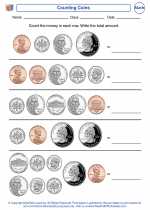
 Activity Lesson
Activity Lesson
 Activity Lesson
Activity Lesson
 Worksheet/Answer key
Worksheet/Answer key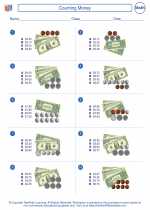
 Worksheet/Answer key
Worksheet/Answer key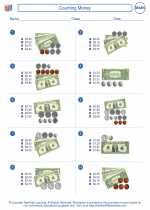
 Worksheet/Answer key
Worksheet/Answer key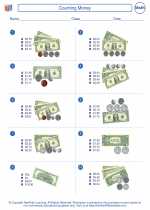
 Worksheet/Answer key
Worksheet/Answer key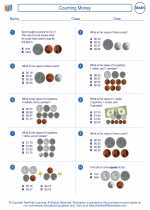
 Worksheet/Answer key
Worksheet/Answer key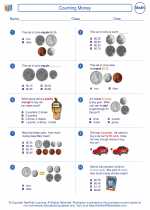
 Worksheet/Answer key
Worksheet/Answer key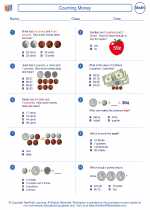
 Worksheet/Answer key
Worksheet/Answer key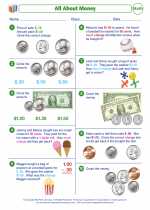
 Worksheet/Answer key
Worksheet/Answer key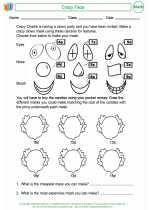
 Worksheet/Answer key
Worksheet/Answer key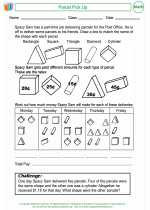
 Worksheet/Answer key
Worksheet/Answer key
